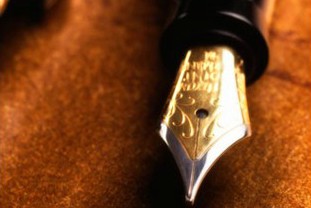Am I eligible to sign a cremation form?

Changes have been proposed to the death certification system in England, Wales, and Northern Ireland. But for now, the current system requiring a doctor’s signature on two separate cremation forms is still in place.
Changes to the way deaths are certified were introduced in Scotland in 2015, including a new Medical Certificate of the Cause of Death (MCCD) form, meaning separate cremation forms were no longer required.
For GPs working in England, Wales and Northern Ireland, signing cremation forms may seem straightforward, but the MDU receives a number of calls on this topic each year.
The common queries raised by GPs are whether they are eligible to sign cremation forms and how to deal with complaints about a failure to sign a cremation form, or allegations of fraudulently signing a form. The latter can lead to a GMC investigation or, more rarely, the police making enquiries.
Who can sign cremation forms?
There are strict requirements concerning a doctor’s eligibility to sign cremation forms, set out in Department of Health guidance The Cremation (England and Wales) Regulations 2008- guidance to medical practitioners.
The requirements for the doctor signing form Cremation 4 include:
- You must be registered (provisional or temporary registration is acceptable) with a licence to practice from the GMC.
- You should also have treated the deceased during their last illness and have seen the deceased within 14 days of death.
- You should have cared for the patient before death or be present at the death. If that GP is unavailable, the coroner may agree to authorise a partner to sign the form.
- You must also have examined the body after death.
The requirements for the doctor filling in form Cremation 5 include:
- You are responsible for checking form Cremation 4 and querying any inconsistencies.
- You must be fully registered for at least five years with a licence to practice.
- You must be fully independent of the doctor signing form Cremation 4, and not involved in the care of the deceased, or be a relative of the deceased. You cannot be a partner of the GP signing form Cremation 4 or work in the same surgery, even as a locum.
- You are expected to speak to the doctor who signed form 4, except in exceptional circumstances (for example, if that doctor is seriously ill).
Similar requirements exist in relation to signing the cremation forms B and C in Northern Ireland, set out in the Statutory Rules and Orders (NI) 1961, No.61 Cremation, Northern Ireland.
Honesty and accuracy
The GMC makes it clear that you must be honest when signing forms, and make sure you do not mislead. You must make sure you take reasonable steps to check the information is correct, and not deliberately leave out relevant information (Good Medical Practice, paragraph 71).
Ensure your handwriting is legible and enough information is included. It is particularly important, for example, to include the identity and contact details of people questioned about the cremation.
Confidentiality
Bear in mind that the applicant for cremation (usually a relative), has the right to inspect the forms. If you believe that the deceased provided information to you in confidence, and would not wish it to be disclosed to the relatives, you can provide this information to the medical referee on a separate sheet of paper, explaining the reason for doing so.
The role of medical referees
Medical referees review the forms, and can only authorise a cremation if they have been completed in accordance with the regulations. Inaccurate completion of the forms could result in a criminal conviction, or more commonly, GMC investigation.
The anonymised case study shows the types of issues which can arise.
Case study
A GP contacted the MDU after receiving a letter from the GMC. It explained NHS England had raised concerns about her probity and conduct. The GP attended a funeral home to sign a confirmatory medical certificate (form 5). While there, the funeral director asked her to sign another form, explaining that it needed to be signed that afternoon to avoid delaying the funeral. The GP tried to contact the doctor who had signed the cremation medical certificate (form 4), but he was unavailable, so the GP left a message asking him to call back. The GP signed the form, indicating she had spoken to the doctor who had signed form 4, in anticipation of speaking to him later that day.
Another GP arrived later, to sign form 5 at the request of the form 4 doctor, and was surprised to find it had already been signed by another GP. The doctor who signed form 4 raised concerns with NHS England, that form 5 had been fraudulently signed.
The MDU adviser supported the GP in writing to the GMC to explain that she had signed the form in good faith, intending to speak to the deceased’s GP later that day. She had felt under pressure to sign the form so as not to cause difficulties for the family, as the funeral director explained there would be additional cost to the family if the funeral had to be delayed. The GP reflected on what she had done, and was truly sorry for her actions. She now realised the importance of absolutely accuracy when signing forms, to ensure confidence in the medical profession. The case was closed with advice.
Dr Beverley Ward is a medicolegal adviser at the MDU









